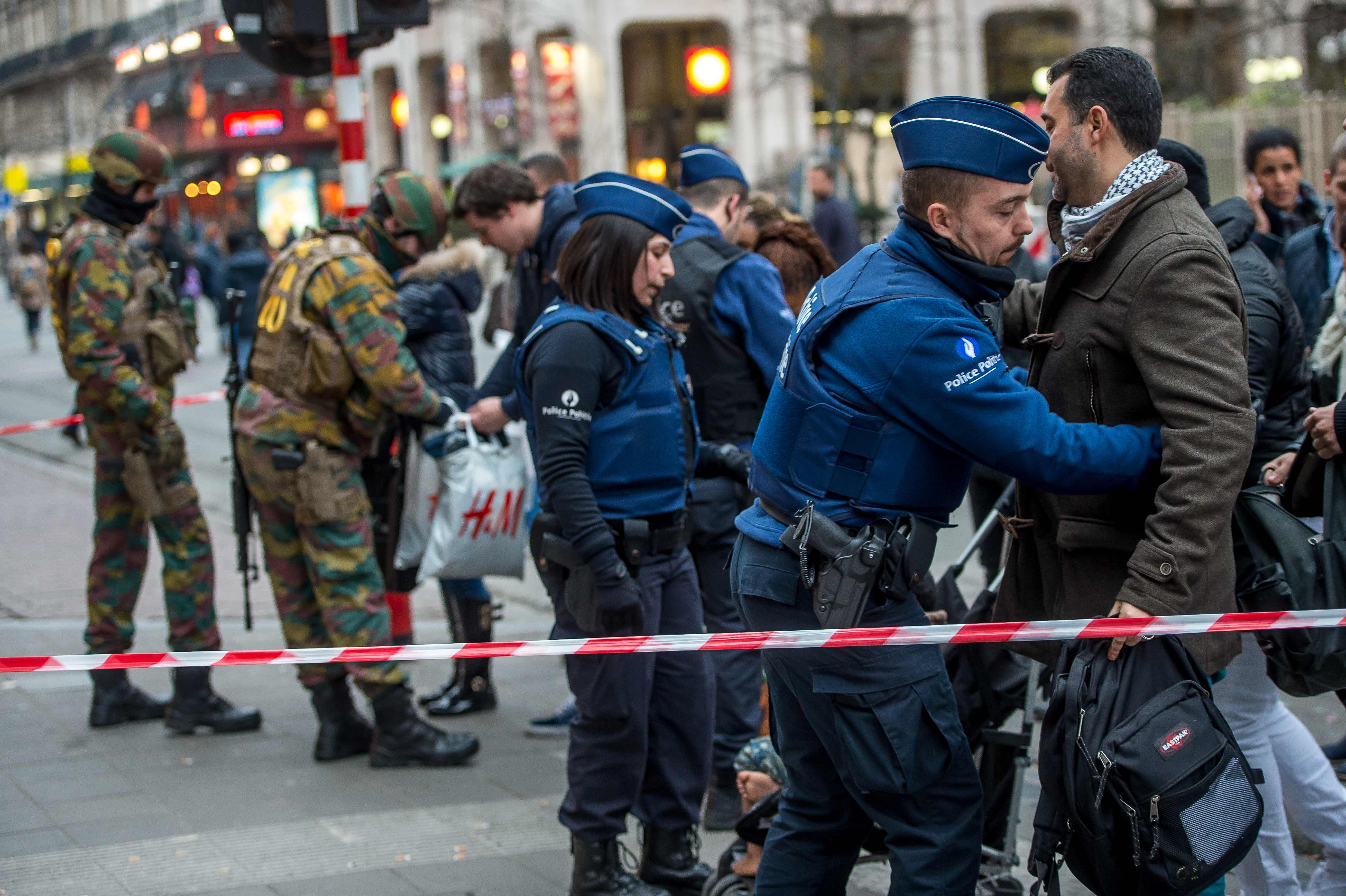The U.S. intelligence system is well prepared to thwart terror attacks like this week's deadly bombings in Brussels but is vulnerable to homegrown assaults by self-radicalized Americans who blend into everyday life.
Lone-wolf attacks like the Boston Marathon bombing and the San Bernardino, Calif., shooting show that the USA is prone to less sophisticated efforts by people who self-radicalize here.
Changes to U.S. counterterrorism methods implemented after the Sept. 11, 2001, terror attacks have led to better information sharing and intelligence collection in this country, said Carrie Cordero, a former national security lawyer at the U.S. Justice Department.
Tuesday's coordinated bombings in the Brussels Airport and a metro station killed at least 31 people and wounded many others.
“I don’t think the fact that there has not been an attack of this type in the United States is an accident,” Cordero said. “These types of attacks are precisely the type of attack that all of our counterterrorism efforts are designed to prevent.”
The two brothers who carried out the suicide bombings were named on U.S. watch lists prior to the Belgian assaults, two U.S. officials said Thursday.
Khalid El Bakraoui and Ibrahim El Bakraoui were added to the lists, which aid counterterrorism officials’ efforts to thwart suspects entry to the U.S., sometime after the Nov. 13 attacks in Paris that killed 130 people, said one of the officials who is not authorized to comment publicly.
The Islamic State claimed responsibility for both attacks in Paris and Brussels.
The contrast between U.S. and European counterterrorism methods begins with different attitudes toward immigrants and information-sharing by law enforcement, analysts say.
“The entire identity of the (United States) is one that embraces immigrants and has an ideology about religious freedom, diversity and acceptance,” said Zuhdi Jasser, founder of the American Islamic Forum for Democracy, which promotes the separation of the mosque and state. “I’ve talked to many (European) Muslims who are reformists like myself and reject any Islamic State ideology and lived in France and Germany all their lives and still don’t feel French or German.”
Jasser said some Muslim Americans become radicalized through radical books and media, but their isolation is not as extreme as in Europe “because the physical enclaves are much less here in America.”
And sharing intelligence information among agencies in Europe, and Belgium in particular, is not as extensive as in the United States.
Every country in Europe has its own counterterrorism police and laws concerning privacy and how those agencies can do their jobs, said Clint Watts, a former FBI counterterrorism agent now at the Philadelphia-based Foreign Policy Research Institute.
“These guys (radicals) are running wild on social media and electronic communications in a way that I think in the USA we have a better handle on it,” Watts said.
The U.S. encryption debate shows that U.S. law enforcement knows it needs access to communications channels, while in Europe officials are still dealing with data privacy, he said.
Unlike U.S. law enforcement, many European police agencies lack access to metadata — the list of phone numbers and names that a suspect’s phone has called, which can expose acquaintances and accomplices, Watts said.
“They don’t do data storage,” Watts said. “They don’t have access to it in the way we have access to it in the United States. They have much stricter laws about what data can be stored about their citizens.”
And such data can be compartmentalized in each country, though he said he’s not sure about how it’s treated in Belgium.
In the USA, the FBI has national jurisdiction in terrorism cases. In Europe, setting up surveillance means consulting the laws of each country when the investigation moves across national borders, Watts said.
Another advantage in the United States: The number of foreign fighters per capita is much smaller than in a country like Belgium, and there is an ocean separating the U.S. from the battlefield.
Fewer than 300 Americans have fought or tried to go fight with the Islamic State, also known as ISIL or ISIS, said Matthew Levitt, a former counterterrorism expert at the Treasury Department and the FBI, and is now director of the counterterrorism program at the Washington Institute for Near East Policy.
The European Union counterterrorism coordinator recently reported that around 5,000 EU citizens have traveled to Syria or Iraq to join the Islamic State and other radical groups, though member state databases list 2,786, Levitt said. Nine out of 10 on that list come from five of the EU’s 28 member states, and several EU countries have yet to connect electronically to Interpol on all their border crossings, he said.
In addition, travelers to the United States are checked against multi-layered databases to make sure they’re not on any terrorist watch lists, Levitt said.
“Our system is 180 degrees better than in Europe,” Levitt said. Yet, he predicted: “We will not catch everything.”
Contributing: Brad Heath and Kevin Johnson

![AFP 550336213 I DEF AOT POL BEL [image : 82228274]](http://www.gannett-cdn.com/media/2016/03/24/USATODAY/USATODAY/635944369497607115-AFP-550336213.jpg)

